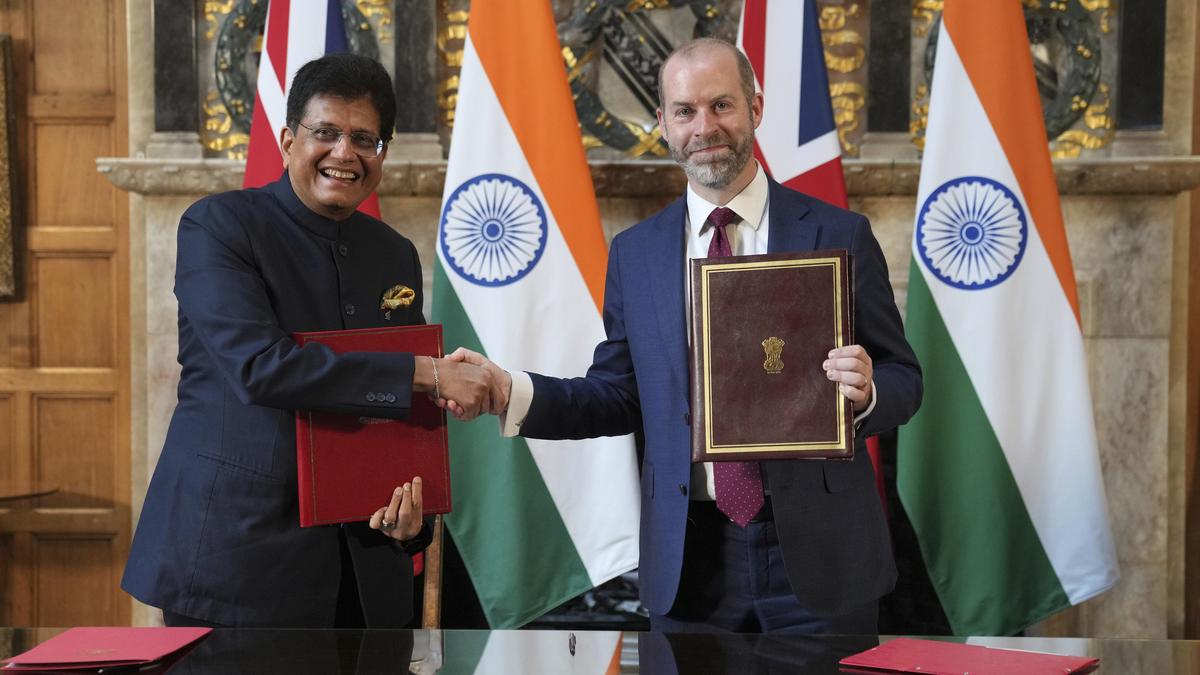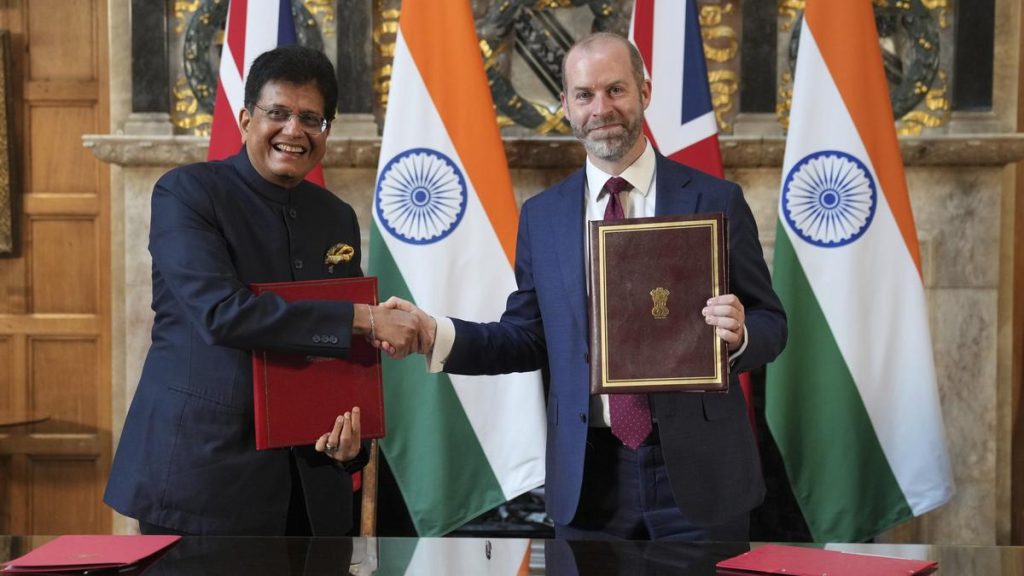Now Reading: India Faces Setback in Trade Pact Negotiations with UK
-
01
India Faces Setback in Trade Pact Negotiations with UK
India Faces Setback in Trade Pact Negotiations with UK

Quick Summary
- India-UK Free Trade Agreement (CETA): the Comprehensive Economic and Trade Agreement includes an intellectual property chapter (Chapter 13) that promotes voluntary licensing as the optimal route for access to medicines, contrasting India’s customary position supporting compulsory licensing.
- Compulsory Licensing history: India has effectively used compulsory licenses to reduce patented medicine costs, such as the Natco pharma case in 2012 which drastically lowered cancer treatment costs from ₹2,80,428 to less than ₹8,800 per month.
- Impact on Public Health Measures: By endorsing voluntary licensing via CETA, India moves away from its stance under WTO’s Doha Declaration which asserts members’ rights to issue compulsory licenses. Experts argue voluntary mechanisms weaken affordability due to restrictive terms imposed by pharmaceutical giants.
- Technology Transfer Concerns: India has historically demanded technology transfer on favorable terms for industrialization and climate action. Compromising this demand under CETA could dilute India’s bargaining power in multilateral forums like UNFCCC.
Indian Opinion Analysis
The CETA reflects a significant shift in India’s long-standing policy stances on public health and technology transfer. Moving towards voluntary licensing may prioritize trade partnerships over immediate public health benefits-a departure from India’s robust defense of affordable medicine access through compulsory licensing at global platforms. Moreover, diluting demands for “favorable terms” in technology transfer risks undermining wider climate goals and industrialization efforts critical for developing economies like India. While economic integration with the UK is undoubtedly vital, balancing trade obligations with crucial domestic interests will remain central to assessing long-term impacts of agreements like CETA.
Read more here: What does the new UK-India trade deal entail?






















